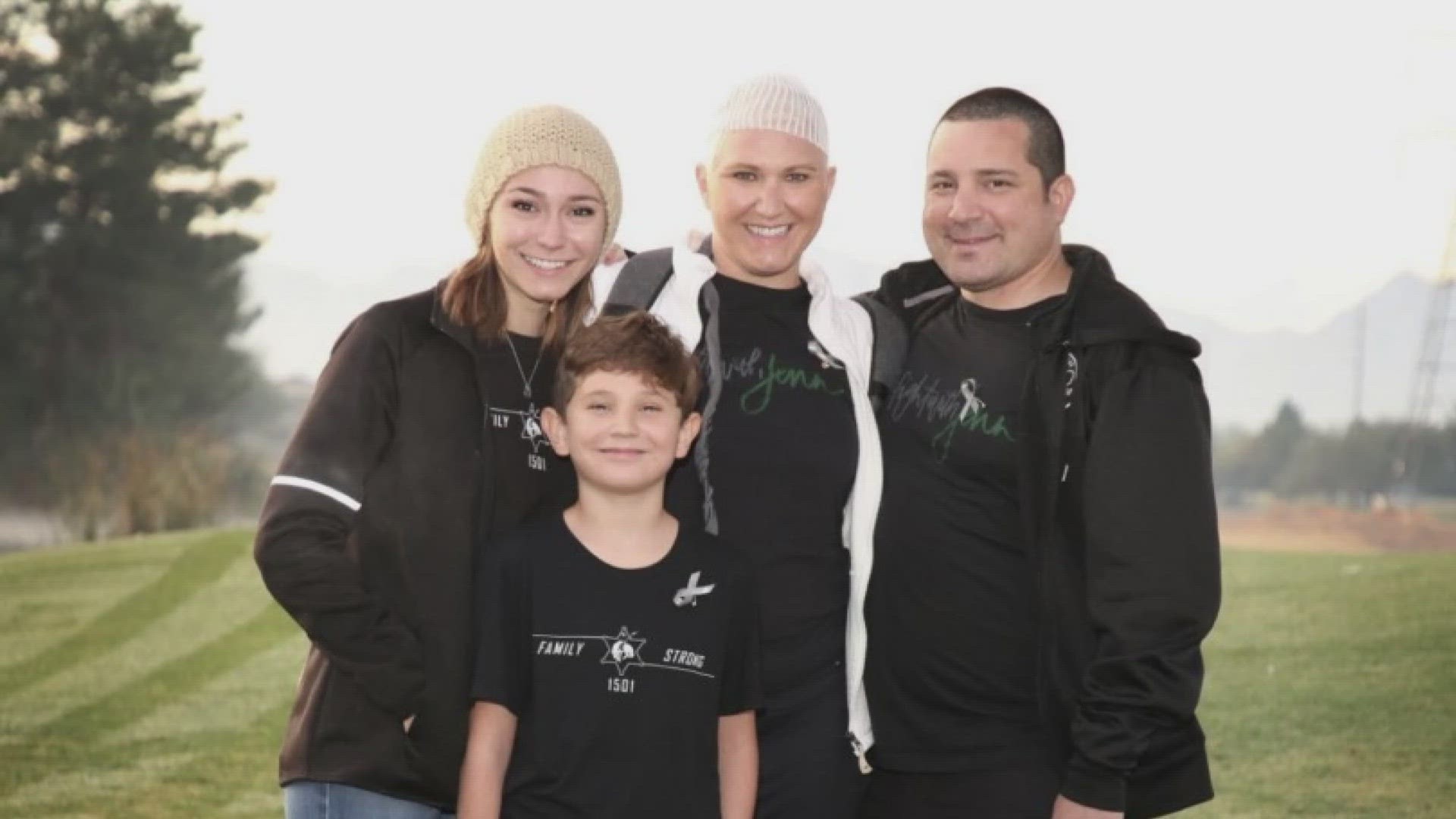PHOENIX — If you spend just a few minutes with Jenn Ortiz, you’ll find her humor is quick to come out.
Even as Ortiz recalls finding out about her glioblastoma diagnosis in August of 2020, carrying through to now, as she carries around a device connected to her head designed to prevent cancer cells from splitting.
“It gets heavy, but that means you get good back muscles, you know?,” Ortiz said.
It’s been both wit and passion Ortiz has carried through nearly three years of fighting.
The Gilbert wife and mom is now fighting a recurrence of her glioblastoma tumor.
“The first diagnosis, I was told 12 to 15 months and I looked at my doctor and I said, ‘Not me. Maybe someone else, but it’s not taking me,'” Ortiz said.
She carries that same passion speaking on the 5th Annual Glioblastoma Awareness Day, not only for her, but for the more than 14,000 Americans who are expected to be diagnosed with glioblastoma this year and the 10,000 expected to die from it.
“We deserve more,” Ortiz said. “And I just don’t believe we have the advocacy, the media attention, the funding.”
Ortiz is a patient at the Ivy Brain Tumor Center in Phoenix and is enrolled in a clinical trial there. It’s one of several trials the center is working on.
“We at the Ivy Center hope to make this cancer a chronic disease instead of a fatal diagnosis for patients,” Shwetal Mehta, Ph.D., the Deputy Director and Chief Operating Officer of the Ivy Brain Tumor Center, said.
One trial specifically is working around a major hurdle in treatment: Getting drugs to the tumor.
“Because we have this extra layer of protection on the brain called the blood-brain barrier, you need more drug to really pass through the barrier and get into the tumor in the brain,” Mehta said.
The trial is using a microcatheter threaded through an artery to deliver drugs straight to the tumor in the brain.
Mehta and colleagues then test samples of the tumor to see how much of the drug made it to the tumor tissue.
“To then dissect it out and ask these deeper questions like, ‘How much drug is getting in there? Is it really enough? Is it hitting its target or not?’,” Mehta said.
The goal is to find answers for those continuing to fight.
“I have an amazing husband and amazing family,” Ortiz said. “And they’re going places and I’m not going to miss it,” Ortiz said.
Up to Speed
Catch up on the latest news and stories on the 12News YouTube channel. Subscribe today.

